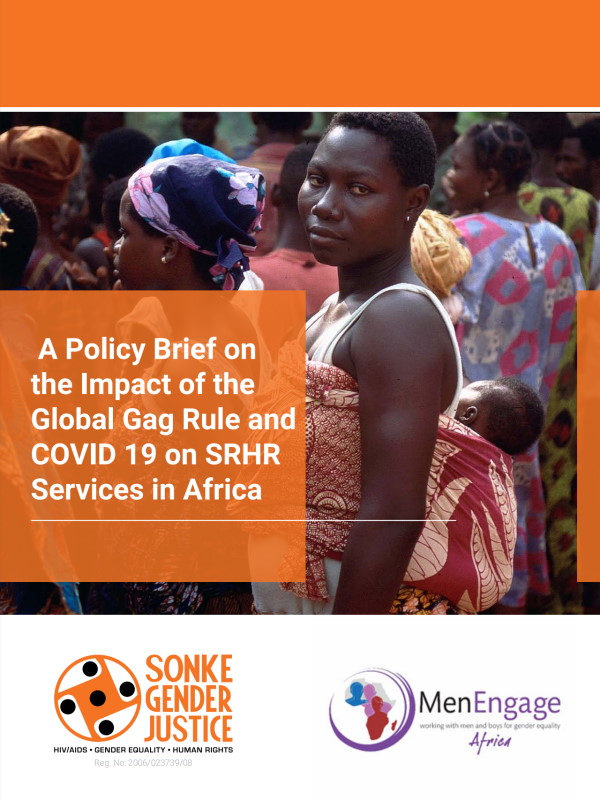- 021 423 7088
- info@genderjustice.org.za
- Whistleblower: 0800 333 059
Sonke Gender Justice, with the support from CHANGE, commissioned a policy brief to explore the impact the Global Gag Rule, and COVID-19 on SRHR services in Africa. Owing to the compounded effects of the Global Gag Rule (GGR) and the COVID-19 pandemic, strained and fragile health systems in Sub- of Saharan African countries are facing a double threat in meeting their sexual and reproductive health rights outcomes (SRHR). The Policy Brief explores some of the effects of GGR and COVID 19 in countries such as Kenya, Sierra Leone, Zambia and Uganda.
The Mexico City Policy, also referred to as the “Global Gag rule“was first enacted by the President Ronald Reagan in 1984 – it initially forced organisations to make the choice whether to implement comprehensive sexuality services without US funding or opt to comply with the conditions attached to US funding to not utilise these funds for work on that nature. In 2017, the Trump Administration reinstated and made further restrictions on the policy gagging any organisation receiving US government funds from engaging in activity aimed at promoting abortion services. It expanded the policy to prevent Foreign or non–US organisations receiving funds from the US government from engaging in activities aimed at providing abortion services, information, counselling, advocacy and referrals. The policy makes exception in cases of incest, rape and where a woman’s life is at risk. In 2019, Trump’s Administration further expanded the policy by restricting gagged organisations from funding organisations providing abortion services and related information even though these organisations do not receive US funding. In addition to this, US organisations are now barred from funding their non-US partners.


Sonke is a South African-based non-profit organisation working throughout Africa. We believe women and men, girls and boys can work together to resist patriarchy, advocate for gender justice and achieve gender transformation.
Please note that Sonke does not offer counselling or other support services to individuals. Click here for information on where to get help.
Sign up for the Sonke e-Newsletter to receive social justice news and views in your inbox.
Please see our Privacy Policy here.